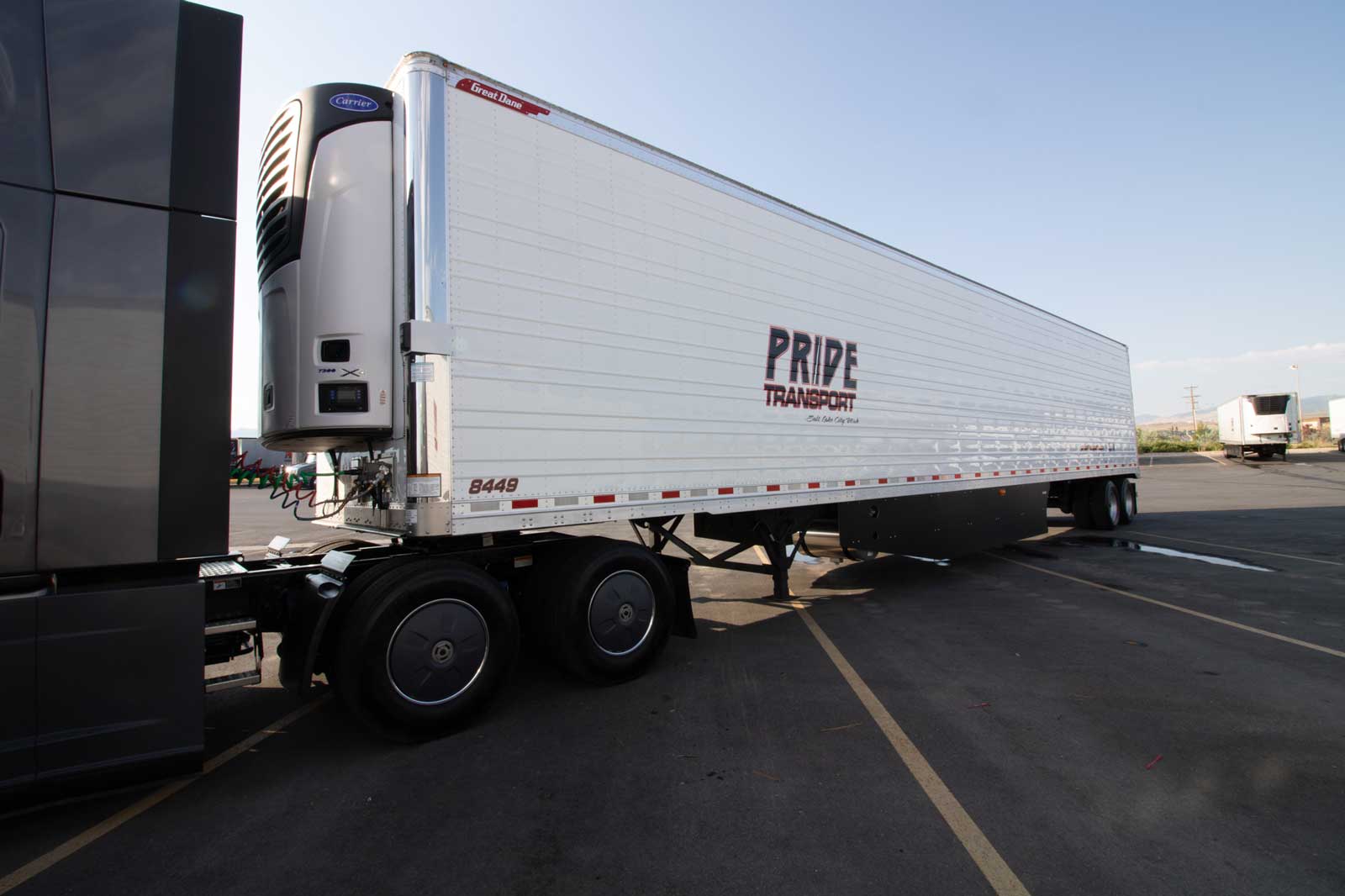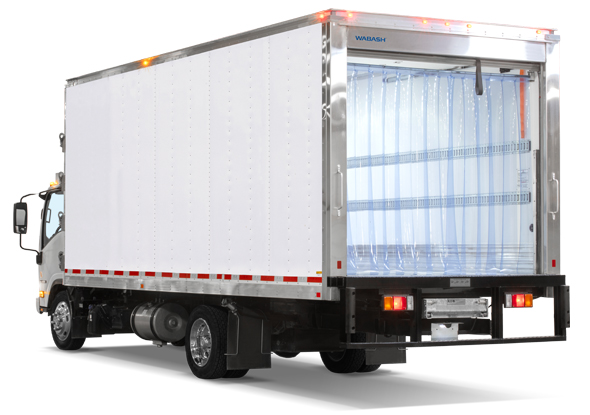Selecting the Right Transportation Refrigeration System for Your Fleet
Picking a suitable transport refrigeration system for your fleet is a vital decision that can considerably impact operational performance and item integrity. It necessitates a comprehensive understanding of your specific refrigeration demands, consisting of temperature requirements and distribution routines.
Comprehending Your Refrigeration Demands
When picking a transportation refrigeration system, understanding your particular refrigeration requirements is vital to making certain product quality and conformity with sector standards. Various elements need to be thought about to establish one of the most ideal system for your procedure. These include the kind of products being transferred, their temperature requirements, and the duration of transit.
For perishable items, such as fresh fruit and vegetables or drugs, accurate temperature control is vital. Comprehending the temperature range required for each and every item enables the choice of a system that can preserve those conditions regularly. Additionally, take into consideration the frequency of shipments and the range took a trip; longer journeys may require systems with boosted insulation or back-up power alternatives to prevent temperature level changes.

Furthermore, the capacity of the refrigeration unit need to straighten with your load size. By completely evaluating these factors, you can ensure that your picked transportation refrigeration system successfully satisfies your functional demands and keeps item integrity.
Sorts Of Transportation Refrigeration Solution
Choosing the right kind of transportation refrigeration system is important for ensuring the secure transportation of temperature-sensitive products. There are several systems readily available, each created to meet details requirements and applications.
The most usual kinds include direct expansion (DX) systems, which make use of refrigerant to soak up warm and cool the freight area properly. These systems are commonly favored for their performance and reduced preliminary costs. An additional option is the main refrigeration system, which serves numerous compartments or lorries from a single compressor device. This is especially beneficial for bigger fleets requiring constant temperature control across numerous transport devices.
Additionally, there are self-contained refrigeration devices that incorporate the compressor and evaporator in one package. These units are ideal for smaller lorries or when space is limited. For specialized applications, such as transporting perishables or drugs, cryogenic refrigeration systems might be utilized, employing liquid nitrogen or co2 to keep ultra-low temperatures.
Lastly, crossbreed refrigeration systems that integrate diesel and electrical power are becoming increasingly prominent, using adaptability in energy use and decreasing ecological impact. Understanding these numerous kinds permits fleet drivers to make educated decisions customized to their certain operational requirements.
Key Attributes to Think About
Just how can one guarantee that a transport refrigeration system fulfills all functional demands? To accomplish this, a number of crucial functions need to be meticulously reviewed. Temperature level control is vital; systems must provide accurate temperature setups to suit different products, varying from iced up products to perishable products.
Energy efficiency is an additional crucial consideration, as it impacts functional expenses. Search for systems that utilize advanced technology, such as variable speed compressors, to optimize power usage my response without compromising efficiency.
One more feature to examine is the dependability and resilience of the tools. Solutions constructed from premium materials and made for durability versus extreme conditions will certainly reduce upkeep costs and downtime.
In addition, the simplicity of upkeep and availability of components can dramatically influence functional efficiency (thermo king transport refrigeration). Functions like modular designs or remote tracking capacities can improve solution procedures
Lastly, compatibility with existing fleet management software can improve monitoring and reporting processes. By focusing on these vital features, fleet operators can make certain that their transport refrigeration systems not just fulfill existing demands yet likewise adapt to future requirements.

Budgeting for Refrigeration Solutions
Evaluating key attributes of transportation refrigeration systems is just one part of ensuring functional efficiency; budgeting for refrigeration services is equally vital. A well-structured spending plan not only incorporates the first purchase price yet likewise considers lasting functional costs, consisting of energy consumption, upkeep, and potential repair service requirements.
When developing a budget plan, fleet managers need to first analyze the overall cost of possession (TCO) This includes not just the acquisition prices yet also recurring expenses connected to fuel performance and the toughness of the refrigeration units. Picking systems with higher power efficiency scores might yield significant financial savings in time, mitigating in advance prices.
Furthermore, fleet drivers should represent possible scalability. As companies expand, the refrigeration requires may change, demanding upgrades or additional systems. Preparation for these future expenses can avoid economic strain.
Financing choices can additionally play a vital duty in budgeting. Leasing, car loans, or straight-out acquisitions each have distinct financial implications, and recognizing these can assist in making a notified choice. Eventually, a thorough spending plan that considers both future and prompt demands guarantees that transport refrigeration systems contribute positively to the general functional performance of the fleet.
Upkeep and Assistance Alternatives
In the world of transportation refrigeration systems, reliable upkeep and assistance alternatives are critical for guaranteeing optimal performance and longevity. Routine maintenance is vital to stop malfunctions and preserve the stability of temperature-sensitive cargo. It is advisable to establish a routine examination timetable with certified professionals that can do essential checks and fixings on refrigeration devices.
Assistance choices should consist of a robust service arrangement, covering both regular upkeep and emergency repairs. This makes certain that your fleet has accessibility he has a good point to trigger support, minimizing downtime and maintaining functional performance. Several suppliers supply thorough support packages that consist of training for your personnel, enabling them to execute fundamental troubleshooting and maintenance jobs.
In addition, making use of remote tracking technology can boost your maintenance strategy - best site thermo king truck refrigeration. These systems offer real-time information on temperature and efficiency, enabling proactive actions before issues rise. Purchasing training and modern technology not only boosts your fleet's dependability but likewise extends the life expectancy of your refrigeration systems
Ultimately, a critical method to upkeep and support will guard your investment and make certain that your transport refrigeration systems operate at peak performance, providing regular results for your service.

Final Thought
In final thought, selecting the proper transport refrigeration system for a fleet demands a detailed examination of details refrigeration requirements, system types, and necessary functions. In addition, cautious budgeting and preparation for future scalability will add to the long-lasting success of the refrigeration strategy.
Choosing an appropriate transportation refrigeration system for your fleet is an important decision that can dramatically influence operational performance and product stability.When selecting a transport refrigeration system, recognizing your particular refrigeration demands is paramount to making sure product high quality and conformity with industry requirements. By extensively evaluating these elements, you can make sure that your selected transport refrigeration system successfully fulfills your operational requirements and maintains product integrity.
Inevitably, a thorough budget that thinks about both prompt and future requirements makes certain that transportation refrigeration systems contribute positively to the general functional performance of the fleet.
In verdict, selecting the suitable transport refrigeration system for a fleet requires a comprehensive examination of details refrigeration needs, system types, and important functions.